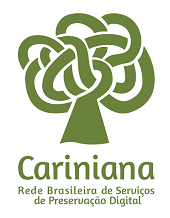Historical time and chronology: the known versus the taught by elementary school teachers
DOI:
https://doi.org/10.5433/2238-3018.2009v15n0p85Keywords:
History teaching, Teacher development, Historical time, Chronology.Abstract
By expressing the pluralism f the historical time and the social-cultural context of its construction, and by seeing chronology as representative of its own time and space, this study tried to recognize in the discourse and pedagogical actions of four (4) fourth grade Elementary School teachers, their assumptions about the recent changes in historiography, specifically in regards to chronology. The alternatives used by the teachers to meet the needs of their students due to their heterogeneity were analyzed, taking into consideration the impact of their education on these options/alternatives and justifications for the teaching of History. Using as reference the theoretical assumptions from the "Les Annales" movement, the research used two semi-directive interviews, observation of school facilities, the lessons plus the collection and analysis of the textbooks and students notebooks, school curriculum, and programs from University History Course disciplines. Listed among the theoretical references used in this study are the following authors: Piaget, Vygotsky, M. Bloch, L. Febvre, Furet, Certeau, Le Goff, Nora, Rüsen and Kosseleck.
Downloads
References
BRAUDEL, F. Escritos sobre a História. São Paulo: Perspectiva, 1978.
CERTEAU, M. A história: uma paixão nova. In: LE GOFF, J. et al (orgs.). A nova história. São Paulo: Edições 70, 1977
CHARTIER, R. A História Cultural: Entre Práticas e Representações. Rio de Janeiro: Difel, 1990.
ELIAS, N. Sobre o tempo. Rio cle Janeiro: Jorge Zahar, 1998.
ELIAS, N. sociedade dos indivíduos. Rio de Janeiro: Jorge Zahar, 1994.
LAHIRE, B. Homem plural: os determinantes da ação. Petrópolis: Vozes, 2002.
LÉVI-STRALSS, C. O pensamento selvagem. Campinas: Papirus, 1989.
MARTINS, M. C. A história prescrita e disciplinada nos curriculos escolares: quem legitima esses saberes? Bragança Paulista: EDUSF, 2002.
PEARCE, W.B. Novos modelos e metáforas comunicacionais: a passagem da teoria à prática, do objetivismo ao construcionismo social e da representação à reflexividade. In: SCHNITMAN, D. F. Novos paradigmas de cultura e subjetividade. Porto Alegre: Artes Médicas, 1976. Cap. 9, p. 172-187.
PELBART, P. P. O tempo não-reconciliado: imagens de tempo em Deleuze. São Paulo: Perspectivas, 2004. (Coleção Estudos).
REIS, J. C. Tempo, história e evasão. Campinas: Papirus, 1994.
RUSEN,J. Razão histórica: teoria da história: os fundamentos da ciência hisórica. Brasília: UNB, 2001.
Downloads
Published
How to Cite
Issue
Section
License
Copyright (c) 2009 História & Ensino

This work is licensed under a Creative Commons Attribution 4.0 International License.
História & Ensino adota a licença CC-BY esta licença permite que os reutilizadores distribuam, remixem, adaptem e criem a partir do material em qualquer meio ou formato, desde que a atribuição seja dada ao criador. A licença permite o uso comercial.






















